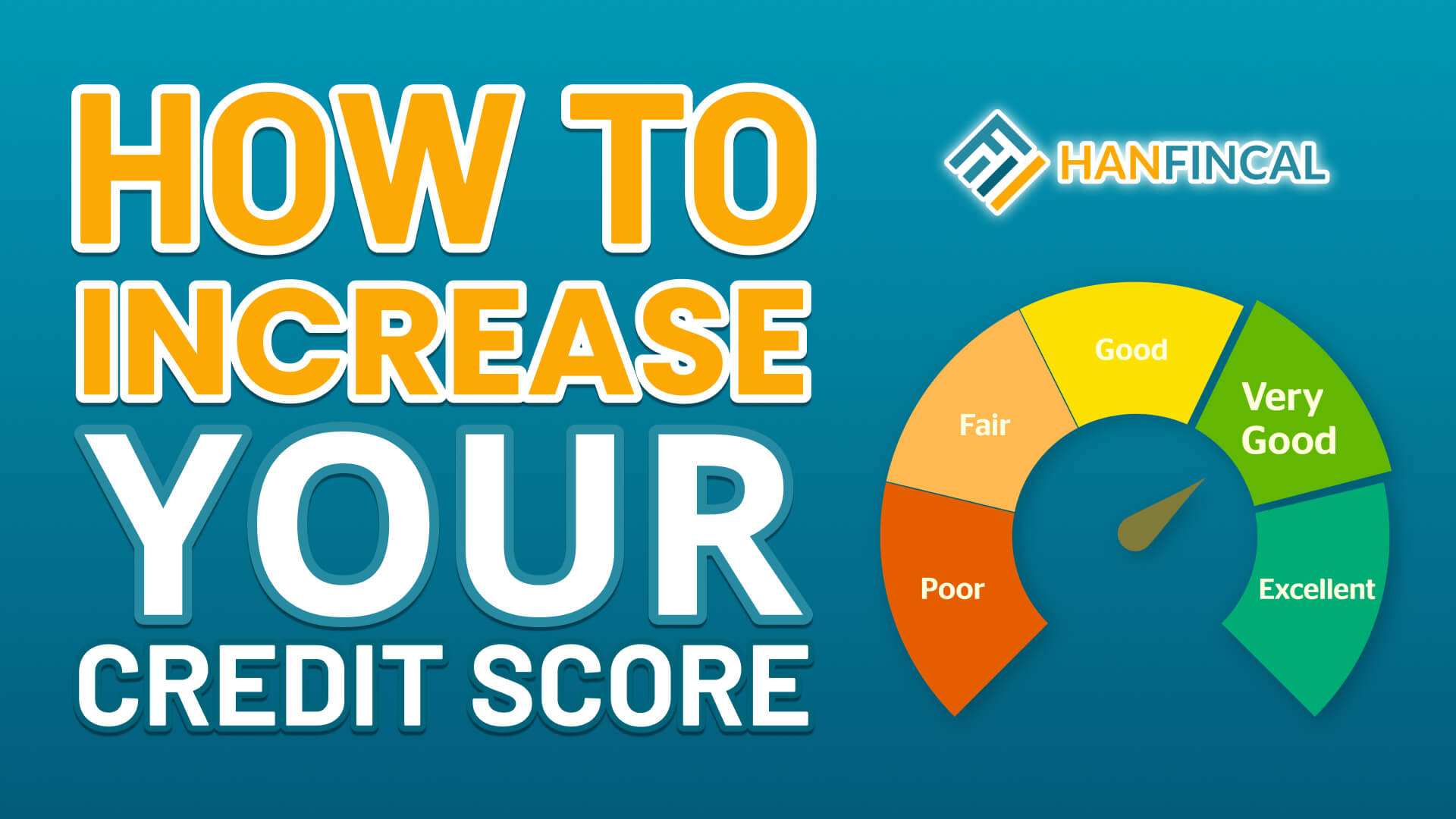Many people are looking for home loans for bad credit these days. This is because owning a home is the most cherished aspiration of every American. However, not everyone has excellent or good credit. So, you have bad credit, can you be considered for home loan options or not? Join Hanfincal to learn more about this topic and explore many incredible programs.
1. What does your credit score mean?
Your credit score ranges from 300 to 850, representing the risk that a lender takes when you borrow money. This means that the higher the score, the better a borrower looks to potential mortgage lenders. Moreover, it is used by banks, credit unions, and other financial institutions to determine your risk level as a borrower.
A credit score is an important factor in a lender’s decision to extend credit. Borrowers with a high credit score are usually eligible for home loans with lower interest rates and better terms.
Credit scoring factors include repayment history, loan types, length of credit history, and an individual’s total debt.
The Fair Isaac Corporation, also known as FICO, developed the credit score model, which financial institutions use. While there are other credit-scoring systems, the FICO score is by far widely used.
Struggling with credit cards? Immediate relief awaits! Answer a few questions to qualify for personalized assistance.
2. What do lenders care about a bad credit score?
There is no minimum score standard when buying a home. This score is significant because it demonstrates your history of debt management. Although government-backed loans give lenders some peace of mind, they still have credit score requirements, even much lower ones. However, credit scores requirement is based on the types of loans you apply for or your lender.
A good credit score makes the home-buying process easier and more affordable – the higher your credit score, the lower mortgage interest rate you’ll qualify for. So, if your score is less than 500, you may have a difficult time getting a mortgage and will most likely need to work on improving your score first.
That is why you should start improving your credit right away. Don’t let your free credit score slip through your fingers; click the link to learn the quickest way to obtain your online free score.
Claim Your Credit Score Online
3. Home loans for bad credit
3.1. FHA loans
Minimum credit score: 500
An FHA loan is known as a loan under the guarantee of the Federal Housing Administration. Because of the lower qualifying requirements, these types of loans can be very appealing to first-time home buyers.
The FHA loans require a minimum credit score of 500. As of 2022, you can borrow up to 96.5% of a home’s value with an FHA loan, provided your credit score is at least 580. This implies that the required down payment is only 3.5%. However, if your credit score is between 500 and 579, you can still qualify for an FHA loan if you can make a larger down payment of 10%.
3.2. VA loans
Minimum score: 620
A VA loan is under the United States Department of Veterans Affairs guarantee. It is provided by a private lender such as a bank, credit union, or mortgage company. You may be eligible for a VA loan if you are a veteran or are currently serving in the armed forces. Because it usually does not require a down payment, a VA loan can make it easier to buy a home.
While no specific credit score is required to qualify for the loan, a 620 is required to qualify for a VA loan.
3.3. USDA loans
Minimum score: 640
The U.S. Department of Agriculture backs USDA loans as part of its Rural Development Guaranteed Housing Loan program. USDA loans are available to low–to average–income home buyers. They provide financing with no down payment, reduced mortgage insurance, and lower mortgage or refinance rates than the market.
Most mortgage lenders desire a 640 score and other income requirements specific to a USDA loan to qualify for the loan.
3.4. Conventional loans
Minimum score: 620 or higher.
A conventional mortgage, also known as a conventional loan, is any home buyer’s loan that a government entity is not offered or guaranteed. On the other hand, this mortgage application is available from private mortgage lenders such as banks, unions, and mortgage companies.
There is no set minimum income, credit score, or down payment requirement to qualify for this loan. However, a 620 or higher score is usually required to qualify for this mortgage application.
There are still exceptions. If you have a high income concerning your loan amount or a larger-than-minimum down payment, you can qualify for a conventional loan even if your credit score is less than 620.
Moreover, if your score is just over 600 and equity in your home > 20% of its value, you can use home equity to apply for a loan with your home as collateral.

Home loans for bad credit
4. Options for buyers who can’t get a bad credit mortgage
4.1. Add new accounts (in bulk)
If you cannot obtain a bad credit mortgage, consider improving your score level. And here’s an option to think about. Opening multiple bank accounts at the same time is also a positive sign for your credit. This means you’ll be increasing your available credit as well as your overall credit mix. Doing so in bulk is even better because it keeps everything in sync. All of your inquiries will be removed on the same day, any new accounts will age together, and you will have more available credit on your report.
This modification allows you to establish a more solid payment history on your report. You should see a positive result on your credit statement within 30-45 days of opening these accounts.
However, many credit cards are not a good choice because you should apply for one in an essential situation because if you have many credit cards that exist once time, the lender may think you have too much debt. That leads to hurt your creditworthiness.
4.2. Find a co-signer
If the lender’s credit scores requirement are too high and your score is ineligible, finding a co-signer with good credit scores or higher is the best choice. Because the co-income signers and assets will be considered alongside yours, this addition may help push you over the credit threshold.
A co-signer is a second person who accepts to repay a loan if the primary borrower fails to do so. When you co-sign on any loan including personal loans or federal counterparts, the loan is recorded on both your credit report and one of the primary borrowers. You will benefit from those marks as long as they make on-time payments. However, if the borrower misses a payment or stops making mortgage payments on the loan entirely, you will be liable for the loan. If you do not pay, the lender has the right to sue you in court for the money.
If your co-signer has substantial collateral and good credit scores, you may be able to obtain a larger loan amount with them, even if you have bad credit, giving you a larger budget when looking for a home.

Options for buyers who can’t get a bad credit mortgage
4.3. Stay away from hard credit inquiries
Credit is a sensitive issue during federal or personal loans applications, and it can have a significant impact on your credit marks. While getting an insurance quote does not affect these scores, applying for new credit does. It is not a good idea to have too many hard inquiries on your credit.
When applying for any financial transaction requiring a credit pull, always inquire whether it is a hard or soft pull. Avoid doing anything that requires hard credit inquiries.
Looking for a quick loan solution? Apply, qualify, and receive funds promptly. Easy, secure, and efficient.
4.4. Pay for deletions
The collection is one of the worst things you can have on your credit statement. Collections demonstrate to mortgage lenders that you owe money to someone and have failed to repay it. This could be false, but you can’t explain it to mortgage lenders. In their eyes, it will be your black hole or red flat.
Even if you pay off the collection, it will still appear on your report as “Paid,” which is preferable to having an outstanding collection. However, if you make a late payment, the best result that will help you is to request the items be removed from your credit report.
Make sure you get the transaction in writing before paying for deletions. It will appear that you never received the collection, raising your scores and giving mortgage lenders one less reason to reject you. Bear in mind this action can take you closing costs, so consider carefully before doing so.
4.5. Increase your available credit
Increasing your available credit is one of the most long-term ways to improve your credit marks. You can obtain this by either paying down balances or requesting a credit limit increase. This effort improves your scores by lowering your credit utilization, a major factor in determining your score. Moreover, you should have a debt-to-income of 36% or less. In other words, you have to consider lowering your debt-to-income by increasing your monthly income, paying off credit cards or all of your debts, or both. Remember that having a higher score is preferable when purchasing a home and applying for mortgages. It will help you get the best options for loans and mortgages with low down payments and interest rates.
Hanfincal provides four home loans for bad credit that can help you become the new owner of your home in a short time. Let us think carefully and avoid making a new home a financial burden on your shoulders. Many financial assistance programs are available to create a big chance for you.
==> Read More:




